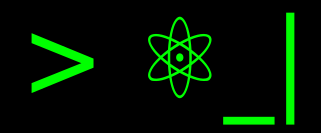Newton’s Double Birthday and the Gregorian Calendar#
The commemoration of Sir Isaac Newton’s birth presents a curiosity: it is celebrated on both December 25, 1642, and January 4, 1643. This dual observance stems from the shift between the Julian and Gregorian calendars. This article explores the reasons behind this double celebration, delving into the historical context of the calendar reform and its impact on the dating of historical events.
The Calendar Reform#
The change from the Julian to the Gregorian calendar resulted from the papal bull Inter Gravissimas, issued by Gregory XIII. This bull revoked the Julian calendar, which had been in use since its implementation by Julius Caesar, and established the Gregorian calendar. The primary motivation for this change was to correct the Julian calendar’s drift relative to the date of Easter. The Council of Nicaea (325 AD) had fixed Easter as the Sunday following the first full moon after the spring equinox. By the 16th century, the Julian calendar had drifted, causing the spring equinox to occur approximately ten days earlier than its intended date of March 21.
Implementation and Discrepancies#
The Gregorian calendar reform, overseen by ecclesiastical jurist Ugo Buocompagni (Gregory XIII) and implemented with the help of astronomer Christoph Clavius and physician Luigi Lilio, resulted in ten days being skipped: October 4, 1582, was followed by October 15, 1582. However, the adoption of the Gregorian calendar was not immediate or universal. Due to geographical distances and varying levels of papal influence, different regions adopted the new calendar at different times. For instance, Spanish territories in South America transitioned a year later.
Newton’s Birth and the Calendar Discrepancy#
Isaac Newton was born in 1642, at a time when England still used the Julian calendar. Therefore, his birthdate was recorded as December 25, 1642, according to the Julian calendar then in use in England. However, according to the Gregorian calendar, which was already in use across much of Europe and the Americas, his birthdate corresponds to January 4, 1643. England did not adopt the Gregorian calendar until 1752, further highlighting the historical complexities surrounding the dating of events from this period.
Conclusion#
The double celebration of Newton’s birth serves as a reminder of the complexities introduced by historical calendar reforms. The shift from the Julian to the Gregorian calendar not only corrected astronomical inaccuracies but also created discrepancies in historical records, requiring careful consideration when interpreting dates from this era.
Sources#
Isaac Newton. Spanish Wikipedia.
Julian Calendar. English Wikipedia.
Gregorian Calendar. English Wikipedia.
The Julian Calendar. Time and Date.
The Gregorian Calendar. Time and Date.
Inter gravissimas. Wikisources.
The calendar reform. Lux in arcana - The Vatican Secret Archives reveals itself.
